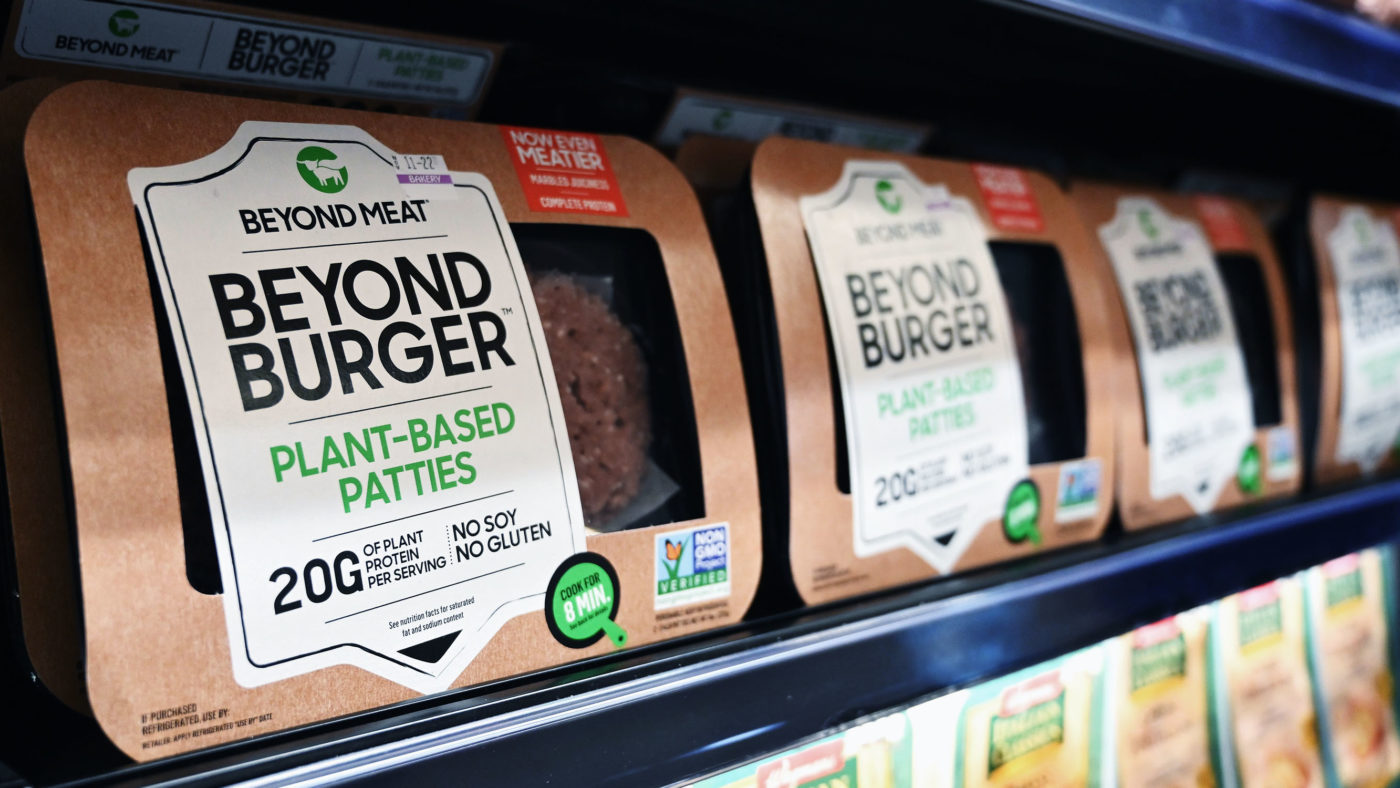Beyond Meat’s call for a meat tax is a textbook example of ‘bootleggers and baptists’: a policy supported by a coalition of profiteering rent seekers hiding on the moral high ground.
Historically, it was illegal alcohol sellers co-opting evangelical Christians to create a powerful coalition demanding prohibition. Today it is a plant-based food company teaming up with environmentalists to demand consumers pay more for meat.
Beyond Meat’s Chief Executive, Ethan Brown, has told the BBC that a meat tax is justified to deal with negative externalities. That sounds reasonable in theory: a Pigouvian tax on something like carbon can indeed force market actors to internalise the costs to others from their activities. And meat consumption does contribute substantially to climate change (14.5% to global carbon emissions), rainforest destruction, and antibiotic resistance and disease.
But does any of that make a new meat tax a good idea?
For one thing, people are already beginning to eat less meat, for a mixture of ethical, environmental and health reasons. The market for meat alternatives is also booming, as Beyond Meat knows only too well. Then there are the negative effects of an extra tax on household budgets, especially among the poorest, who spend a far more of their income on food. A tax risks becoming a de facto meat ban by pricing out the worst off.
There could also be unintended nutritional consequences. Increasing the cost of meat would encourage consumers to substitute meat for cheaper processed foods. Food manufacturers would also be incentivised to reformulate ready meals and other products to contain less protein to avoid the tax.
Indeed, a cost-benefit analysis conducted by the University of Bristol concluded that a meat tax “could do more harm than good”. The researchers found it would cost £242 million a year but only save £100 million per annum in reduced carbon emissions. That’s largely because the tax would force grazing livestock farms to shut down, even when grassland is the most sensible land use, and be converted to non-agricultural uses.
Then there’s the most simple argument of all – most people enjoy meat. We get satisfaction and it provides important nutrients. Even if vegetarianism is on the rise, most people do not want to stop eating meat and there is substantial growing demand from the rising middle class in Asia and Africa.
If we do want to reduce meat consumption, the obvious solution is a high-quality, reasonably priced alternative. After all, entrepreneurial innovation is how the market has been solving environmental challenges for centuries. Plastic provided an alternative to ivory, thus saving elephants from extinction. Petroleum provided an alternative to blubber oil, thus saving the whales.
That’s what makes Beyond Meat’s demand for a meat tax particularly disappointing. Its product is already an extremely successful alternative to animal protein. They are making products from the likes of peas and mung beans, combined with beetroot juice and apple extract, to replicate meat products. The company has long since entered the mainstream, with contracts to supply McDonald’s, KFC, Pizza Hut and Taco Bell. That sort of scale will only help bring down the price of Beyond Meat’s burgers.
So it’s fair to say that the company doesn’t really need a meat tax to be price competitive. Perhaps the real issue is that most people don’t really want a pale imitation of real meat. However much beetroot juice helps a burger ‘bleed’, plant-based patties remain a pretty weak replica of meat in both taste and texture. Some have also questioned Beyond Meat’s environmental footprint and lack of disclosure about carbon intensity. But that’s not the end of the story.
The real problem for the plant-based alternatives is that an altogether more revolutionary alternative is now a reality. Cultured or lab-grown meat can perfectly emulate beef, chicken, lamb, pork or any other animal. It involves culturing animal cells in a bioreactor — in a process reminiscent of making beer. This isn’t science fiction, the technology already exists.
Cost is certainly an issue. The first cultured meat burger was produced in London in 2013 at a pretty eye-watering cost of $250,000. However, there are now some 50 start-ups across the world racing to scale up the product for consumers at a reasonable price.
In December 2020, Singapore restaurant 1880 became the first in the world to sell cultured meat: a chicken nugget. Singapore’s fast-acting regulators are well-ahead of the UK. Our own Food Standards Authority remains stuck in the European Union’s diabolically slow and cumbersome regulatory framework for novel foods. If you really care about reducing meat consumption the focus should not be on pointless taxes, but on removing the barriers to a truly game-changing technology.
Click here to subscribe to our daily briefing – the best pieces from CapX and across the web.
CapX depends on the generosity of its readers. If you value what we do, please consider making a donation.


